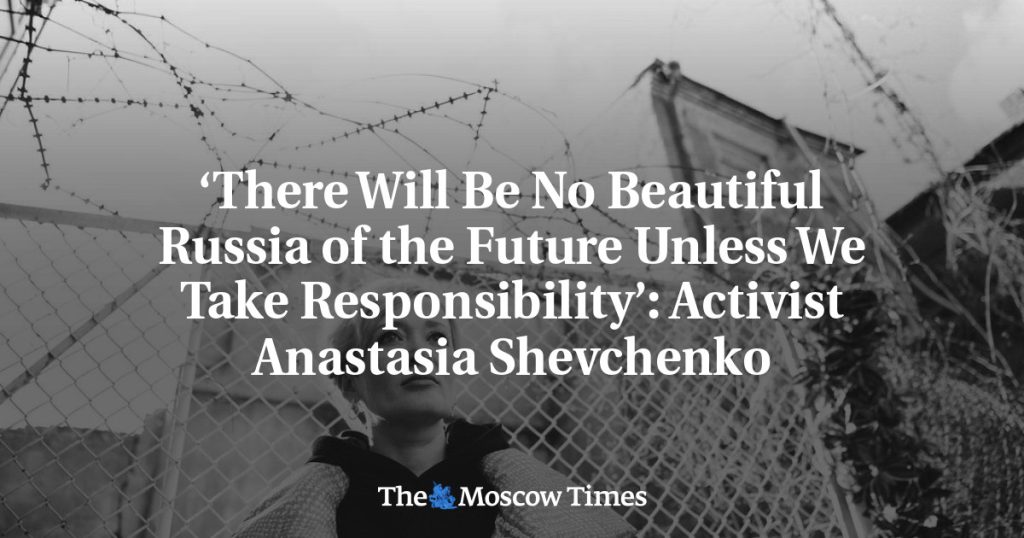Anastasia Shevchenko, an exiled civil activist from Russia, has made it her mission to engage with Russians from all political backgrounds in an effort to win hearts and minds. She gained international attention when she became the first person charged under Russia’s law on “undesirable” organizations for her work with Open Russia. The documentary “Anastasia” showcases the devastating loss she experienced when her daughter passed away while she was under house arrest. Despite the personal nature of her story, Shevchenko believes in being open and sincere to connect with others.
Having fled Russia with her children due to her vocal criticism of the invasion of Ukraine, Shevchenko now resides in Lithuania. She stresses the importance of Russian citizens taking responsibility for the war, rather than shifting blame to Ukraine. She dedicates much of her time to writing letters to Russian political prisoners and Ukrainian prisoners of war, providing support and companionship to those who are incarcerated. She also emphasizes the need to engage with law enforcement personnel to sway them towards opposing Putin’s regime.
Despite living under house arrest without access to the outside world, Shevchenko believes in the power of communication and human connection. By reaching out to law enforcement workers, she aims to show the human side of those who support Putin and gradually persuade them to join the opposition. She also interacts with the wives and mothers of mobilized Russian soldiers, viewing them as allies in the fight against the war. She advocates for keeping dialogue open to pave the way for reconciliation in Russian society after the end of the war and Putin’s rule.
As a member of the Anti-War Committee of Russia, Shevchenko collaborates with other public figures to oppose the war and advocate for democracy in Russia. She envisions a future for Russia where citizens’ rights are protected, the government prioritizes the well-being of its people, and freedom is cherished above all else. Despite the challenges ahead, Shevchenko finds hope in the younger generations of Russians who share her political convictions. Through her work to support activists and political prisoners, she has become a maternal figure to many and remains dedicated to the cause of fighting for a free and democratic Russia where citizens are cared for and their voices are heard.


